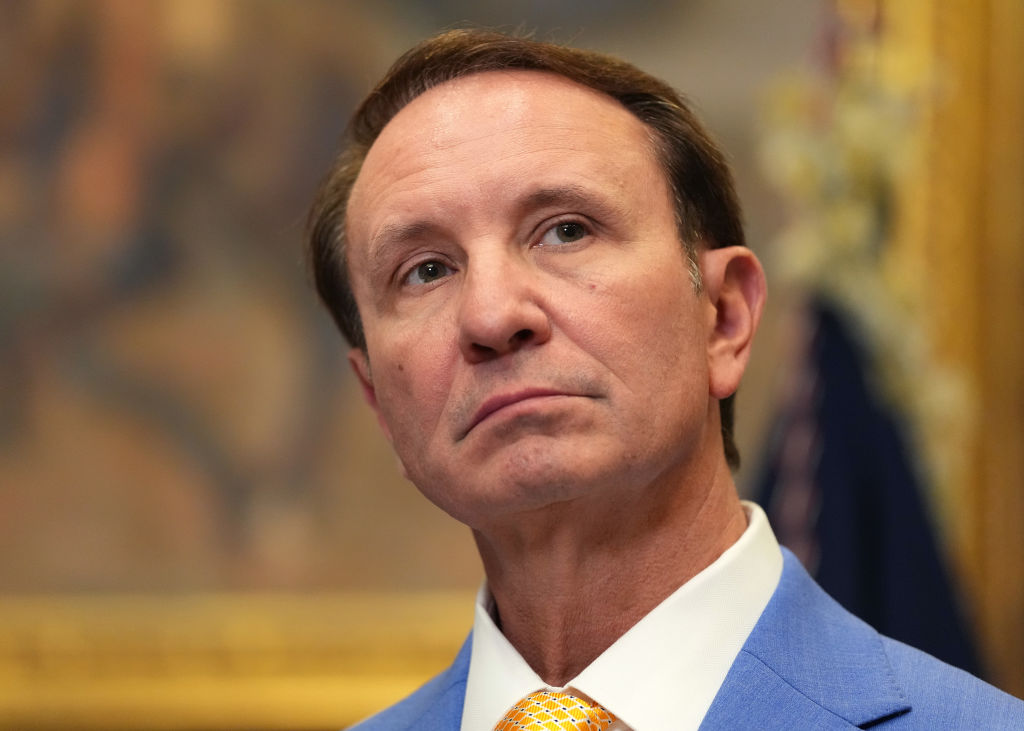From George Floyd to Jacques Beauregard: America’s Racist Rebound

Come, go back with me to the summer of 2020.
Millions of people from all backgrounds flooded America’s streets demanding justice for George Floyd and the long-dead victims of American racism. During this period of racial reckoning, something extraordinary happened: old statues fell. Confederate generals were pulled from their pedestals. Slaveholders were toppled from marble thrones. Base names, school plaques, and public memorials were reexamined and, at last, rejected. Even Aunt Jemima got fired.
It was extraordinary not just because these relics had stood for so long, but because they were never supposed to fall. These monuments had been carefully built to last, not just in stone, but in story. They were erected not in the immediate aftermath of war or glory, but decades later during Reconstruction and Jim Crow, as part of a larger campaign to rewrite history and reassert white supremacy. For generations, they stood unchallenged, unexamined, normalized. They didn’t just commemorate the past; they distorted it, insisting that the Confederacy was honorable, that slavery was an unfortunate “necessary evil” or just a “dark chapter” in American history, and that white dominance was eternal.
So, when those statues fell, they didn’t just crack concrete; they ruptured a national mythology. They forced this country to ask: What kind of stories have we been telling ourselves? Whose version of history have we honored? And who has been erased, silenced, or trampled in the process?
And then, the backlash came swiftly.
Politicians, pundits, and self-anointed defenders of the “real America” started foaming at the mouth and sprinting to pass legislation. They accused activists of erasing history, even though what had actually been toppled was propaganda. School boards started banning books. Governors began defunding diversity programs. The phrase “Critical Race Theory” became a scare tactic. All of it—the removals, the debates, the bans—revealed just how fragile the American memory really is when forced to confront the truth.
Because these weren’t just arguments over monuments. They were battles over meaning. They exposed the deepest fault lines in this nation’s relationship to its own past and made clear that history in America isn’t just taught. It’s fought.
Now, flash forward to this week in Louisiana.
While the rest of us are out here trying to survive climate collapse, student loan debt, and whatever new judicial hell the Supreme Court has cooked up, Governor Jeff Landry decided the real emergency was… a military base not being named after a Confederate family.
With full-throated arrogance, he announced that the Louisiana National Guard Training Center in Pineville will once again be called “Camp Beauregard,” a name previously stripped for its ties to the Confederacy and white supremacy. Beauregard was one of several Confederate figures, along with Robert E. Lee and Jefferson Davis, whose monuments were targeted for removal or recontextualization in New Orleans. But Landry, ever the political illusionist, insists this isn’t about honoring General P.G.T. Beauregard. No, no—it’s about honoring his father, Jacques Toutant Beauregard, a sugar planter and enslaver whose name never once graced a military base until now.
What makes this move so brazen is that Landry didn’t just resurrect a Confederate name; he found a new way to venerate the same old system. He skipped the general who fired the first shot of the Civil War and went straight for the man who owned people and passed that legacy down. Jacques Beauregard wasn’t a national military hero. He didn’t lead any major campaigns. His only enduring historical significance is the fact that he enslaved Black people and raised a son who fought to keep them that way.
That’s who Gov. Landry wants Louisiana to remember with pride. That’s who he’s asking soldiers, including Black soldiers, to salute. This isn’t about history or reverence. It’s about spite. It’s about power. It’s about turning back the clock on racial reckoning and reminding Black people exactly where we stand in the state’s racial hierarchy: underfoot, beneath the boot, behind the name etched into government signage.
Landry’s stunt is not isolated. It’s the latest chapter in the white nationalist scrapbook of American memory. Under Trump’s influence, politicians like Landry are waging a full-blown war on the historical record. It’s not just about books or bases. It’s about declaring that the Confederacy never really lost. That even when the statues fall, the spirit behind them can still be revived through policy, propaganda, and PR.
This is about Making America Great Again, and that requires restoring the myths that once held America together, even if they were built on bondage, theft, and mass murder. Landry’s move to rename the base isn’t some quirky homage to his state’s past; it’s part of the MAGA mandate to resuscitate the lost cause under a new name. It’s about putting a fresh coat of patriotism on the same old plantation logic.
They’re not even hiding it. Landry paired his announcement with a gravestone meme reading “WOKEISM.” He wrote in a Facebook post: Today, we will return the name of the Louisiana National Guard Training Center in Pineville to Camp Beauregard. In Louisiana, we honor courage, not cancel it. Let this be a lesson that we should always give reverence to history and not be quick to so easily condemn or erase the dead, lest we and our times be judged arbitrary by future generations.”
As if restoring the name of a plantation-owning family is some brave act of historical preservation instead of a petty, ahistorical tantrum against progress.
Nobody erased the dead. We just stopped pretending they were heroes. We stopped letting traitors to the United States, defenders of slavery, and men who fought to keep Black people in chains stand unchallenged on our public pedestals and government signs. That’s not cancel culture, that’s called accountability. That’s a long-overdue course correction in a country that’s spent centuries gaslighting its victims.
And that line about how we shouldn’t be “so quick to condemn or erase the dead, lest we and our times be judged arbitrary by future generations?? Please. Chile, I’m a whole historian and I am absolutely here to condemn colonizers, rapists, enslavers, lynchers, and every power-drunk architect of racial violence who thought Black life was disposable. That’s called ethical clarity.
The Confederacy wasn’t misunderstood. It wasn’t unfairly maligned. It was a violent, racist rebellion whose leaders chose war to preserve slavery.
I get so tired of people who argue, “But we can’t judge men of their time,” as if our enslaved ancestors weren’t judging them in real time. You think they were sitting on cotton bales thinking, “You know, Master really needs a DEI training and maybe he’ll stop whipping us and give us our freedom.” These weren’t confused or misguided men. They made deliberate, violent choices to dominate, exploit, and brutalize. And they built systems that still haunt us. Refusing to condemn that isn’t neutrality, it’s complicity.
Judgment is how we learn. It’s how we draw moral lines. If we can’t say that enslaving people was evil, regardless of what century it happened in, then we have no business calling ourselves civilized. You want reverence? Give it to the ones who resisted. Give it to the ones who survived. The rest can stay condemned and thrown into the dustbin of history.
The irony, of course, is that if Jeff Landry had actually read a history book, or even skimmed past the plantation chapter, he’d know that General P.G.T. Beauregard, the very Confederate his office is avoiding by name, went on to support Black suffrage.
After the Civil War, General P.G.T. Beauregard, yes, the same man who ordered the first shots at Fort Sumter, actually did a political about-face. By the early 1870s, Beauregard became a prominent supporter of the Unification Movement in Louisiana. In 1873, he joined forces with a group of white and Black citizens to promote racial reconciliation and political cooperation, publicly advocating for Black suffrage and biracial governance. He gave speeches urging white Southerners to accept the political reality of Black citizenship and warned that continued resistance would doom the South to economic and moral ruin.

In fact, Beauregard’s postwar rhetoric was so conciliatory that it drew criticism from former Confederates and Lost Cause diehards. He openly denounced Jefferson Davis and distanced himself from efforts to resurrect the Confederacy’s ideology, calling instead for peace, unity, and pragmatic cooperation between the races.
So yeah, it’s wild that Jeff Landry and his people are bypassing that Beauregard, the one who tried, however imperfectly, to reconcile with reality, and instead resurrecting the plantation-owning father, Jacques Toutant Beauregard. But I get it. The son doesn’t play well on Fox News. That Beauregard doesn’t troll the libs. Landry needed a name that wouldn’t complicate the white nationalist narrative. The general who advocated Black suffrage doesn’t work for MAGA optics.
So, what does this tell us, really?
It tells us that we’re in a new era of historical gaslighting. That the erasure we were warned about isn’t coming from activists tearing down statues, it’s coming from the state, putting them back up under different names. It tells us that white supremacy no longer needs to shout to be heard. It just needs to legislate. It needs to rename, reframe, and wait for the news cycle to move on.
The press, for the most part, is missing the point. The coverage frames this as another skirmish in the culture war, a “controversial renaming” or a “reversal of a federal decision.” But too few are asking the deeper questions. Why make this move now? Why pour state resources into resurrecting the name of a man who profited from the forced labor of Black bodies when Louisiana remains one of the poorest, most underfunded states in the country? The answer is simple: trolling liberals and appeasing racists is more important to Jeff Landry than solving real problems. Bigotry is his budget. Spite is his agenda.
This isn’t just about one man’s nostalgia or a misplaced reverence for “heritage.” It’s a coordinated strike in a broader campaign to whitewash American history. We are living in a moment where Black history is under siege. School curricula stripped of truth, DEI programs dismantled, and Critical Race Theory demonized as if it were some contagious affliction rather than a framework to understand systemic inequality. Naming a military site after a man whose fortune was built on human bondage isn’t a tribute to courage. It’s a provocation, a middle finger to those fighting for historical clarity and racial justice.
This renaming is happening in the shadow of a larger, more sinister project: the attempt to rewrite the American story from the top down. Under Donald Trump’s revived influence, we are watching the rise of a new Confederacy, not one built on cotton and cannons, but on false memory and white grievance. From banned books to curriculum whiteouts, from the demonization of “wokeness” to the glorification of insurrectionists, we are being led down a path where historical violence is repackaged as patriotism, and those who name it are branded as enemies of the state.
It’s all a cowardly sleight of hand, a shell game played with history, and it tells us everything about where America is headed under Trumpism. If future generations judge us harshly, it’ll be because we allowed men like Donald Trump and Jeff Landry to resurrect white supremacy and call it “heritage.”
Dr. Stacey Patton is an award-winning journalist and author of “Spare The Kids: Why Whupping Children Won’t Save Black America” and the forthcoming “Strung Up: The Lynching of Black Children In Jim Crow America.” Read her Substack here.
SEE ALSO:
Why White Folks Are Grieving Over Destroyed Relics to White Supremacy








